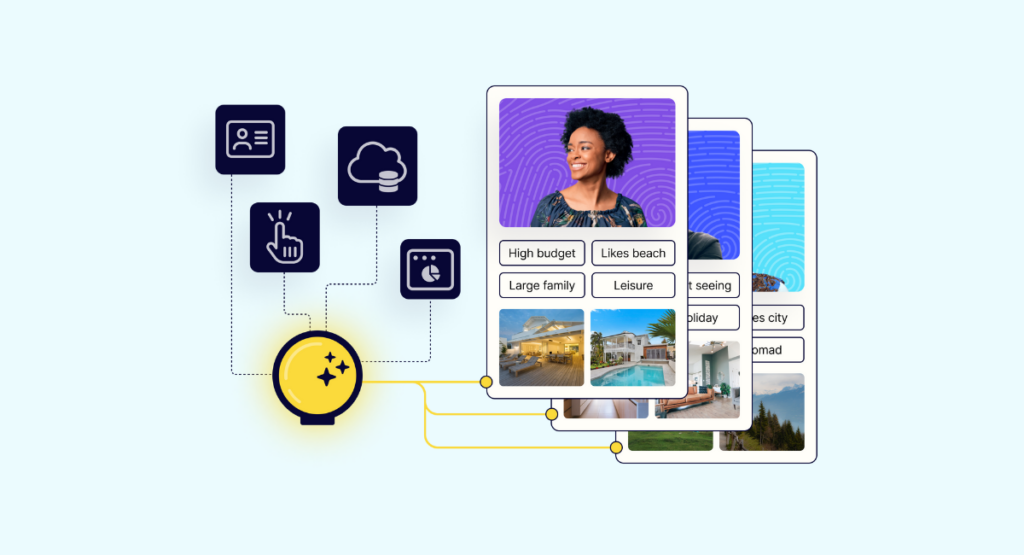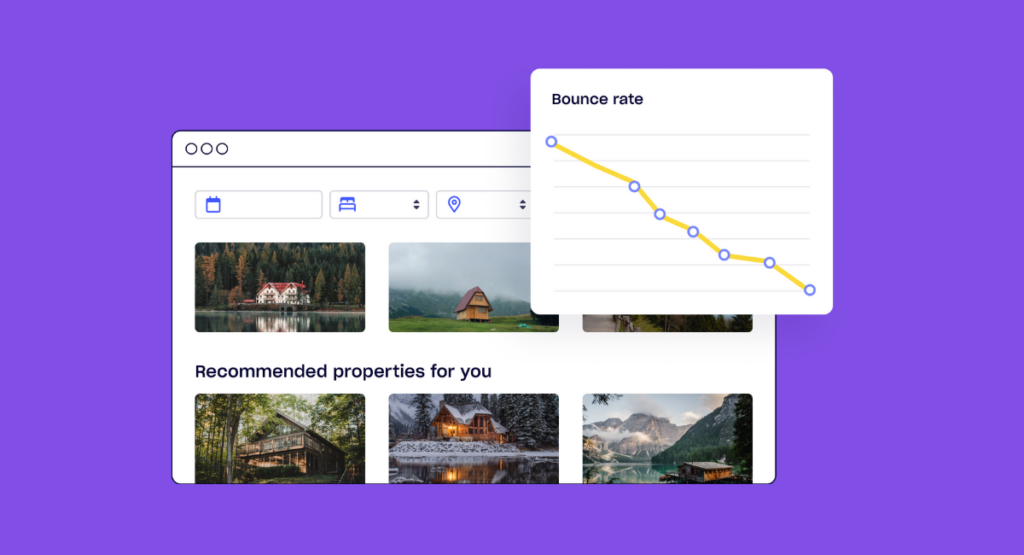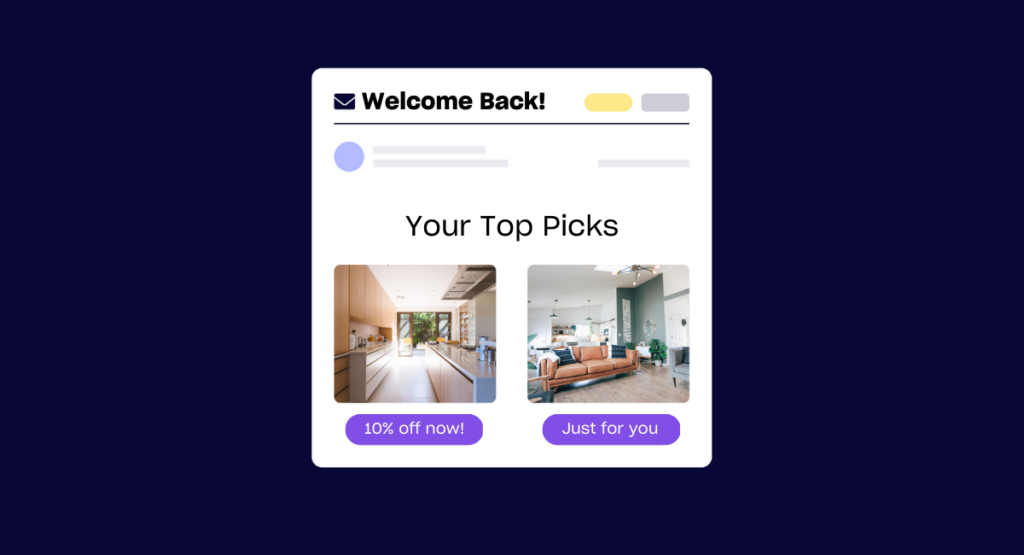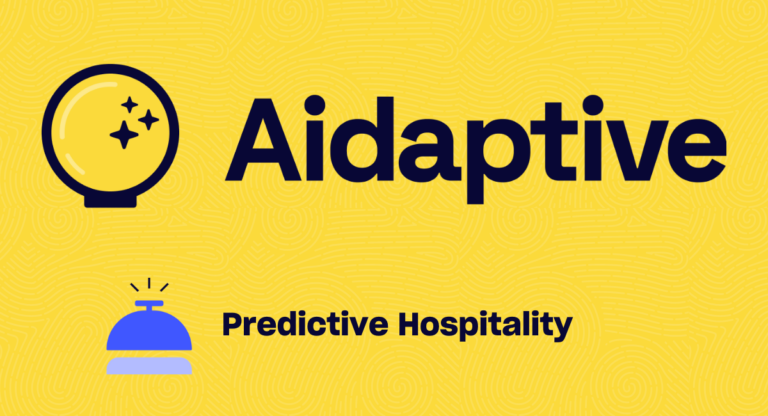Hospitality is personal
Ask a group of vacation rental professionals what hospitality means to them and you’ll hear answers as diverse as the inventory they represent.
Some common themes emerge: connection, belonging, empathy, ease, accommodation, and creating a home-away-from-home.
Ritz-Carlton – who has been practicing the art and science of hospitality as a hotelier for more than 100 years – explains their motto, “Ladies and gentlemen serving ladies and gentleman, exemplifies the anticipatory service provided by all staff members.”
The common thread connecting these themes is an understanding of the guest. That understanding allows hospitality providers to predict customer needs and accommodate them proactively.
Human intuition and relationship-building has always formed the foundation of this insight.
But in our digital world, understanding your guests’ behavior starts with your data.
Effective hospitality has always required this level of personalized service to be present throughout the guest journey.
Our objective in this post – however – is to discuss the touchpoints and impact of personalization at the start of that journey: during the booking process.
Direct booking website = personalization data
Vacation rental managers (VRMs) know their website must be their top-performing sales agent.
Why? Because it is the most profitable channel, operates 24/7, and gives guests the easiest alternative to an online travel agency (OTA).
But beyond other obvious benefits, your direct booking website lets you build your brand by allowing guests to see their stay is with you… not Airbnb.
The guest sees you. But you also see them.
So as a result, it allows you to collect customer information. Data you can use for personalization.
Gathering that data is vital, especially as OTAs update policies restricting access to even basic contact information.
Here are a few ways data is captured on your direct booking site:
- Website pageviews: clicks on listings; saving properties; reading blog posts
- Logged-in users: get connected to their full guest profile & booking history
- Properties: property types and amenities with the most searches and engagement
- Technical data: location, device, browser, metadata
This data – plus other stored info you already have internally – makes it possible to personalize the guest booking experience on your website and marketing.
This is Predictive Hospitality.
Predictive hospitality overview
So what do we mean by Predictive Hospitality?
Predictive Hospitality is personalization at scale that uses machine-learning and automation to predict guests’ needs, interests, and considerations.
Then, that personalization is applied at key touchpoints in the booking journey to increase each guest’s lifetime value (LTV).
Read the clear-cut guide to predictive hospitality here.
Predictive hospitality eases booking
Vacation planning is surprisingly complicated! The average guest visits 18 websites on multiple devices across 8 sessions before completing a booking.
Historically, an effective website must be easy to navigate, promote a brand’s strengths, and guide guests through an intuitive booking process.
These days a beautiful design and functional booking engine are table stakes. Guests are demanding more.
- 64% of customers expect tailored engagement based on past interactions.
- 87% of guests are more likely to make a purchase when travel websites offer personalized experiences.
Predictive hospitality solutions are the best way to meet these customer expectations.
These tools let you present website visitors with personalized property recommendations, search results, promotions, relevant reviews, and more.
Not only are they likely to see what they want, the guest is also instilled with a sense that the VRM understands their needs. A connection is forged.
This confidence increases the likelihood of a direct booking: with the right person in the right property at the right time – heralding a great on-property experience.
Here is how hospitality brands are personalizing the booking process using data.
Personalizing critical hospitality touchpoints
Below we’ll walk through digital touch points and use cases that can benefit from predictive personalization.
Repeat Guests
A repeat guest brings you the highest LTV, the lowest cost of acquisition, and a higher likelihood of a positive review.
In fact, acquiring a new guest may cost between 5 and 25 times more than accommodating a repeat guest! This helps explain the investment in loyalty programs from the traditional hospitality and hotel industry.
Those same hoteliers understand personalization is key to creating loyalty among guests.
More so than points, perks or rewards: guests want to feel seen and be recognized.
To create guest loyalty and drive repeat bookings, it is imperative to personalize the entire guest experience, from pre-booking to post-departure.
By tailoring content to include personalized properties, offers, and specials, managers will find the value of their database is much greater than they ever realized.
And as a result, VRMs can increase their success rate in turning past guests into loyal, repeat bookings.
Predictive Recommendations
The first personalized touchpoint a guest is likely to encounter is a predictive recommendation, usually on the homepage or campaign landing page.
Consumers are accustomed to personalized recommendations, everywhere from Amazon to Zillow, and for good reason. Well-targeted recommendations will:
- increase engagement,
- draw guests deeper into the booking funnel,
- encourage more listing exploration, and
- grow average booking value.
Strategically placed recommendations also increase conversion rates.
We recommend never creating a funnel dead end – for example, at the bottom of a property detail page. So presenting guests with relevant properties encourages continued exploration and reduces abandonment.
It’s not uncommon for a recommendation to be a “bullseye” that the guest views, clicks, and books immediately; but even guests who are not ready to book immediately benefit from recommendations.
Precise recommendations demonstrate to the guest that the PM’s inventory aligns with their needs and makes them more likely to return when ready to book.
Typically guests run a property search next, where they’re often confronted with a daunting volume of properties to wade through. This brings us to another key touch point.
Predictive Search
Predictive search brings personalization to search results.
A typical property search allows the guest to share some of their requirements for a stay, but often listings can still number in the hundreds.
This forces the guest to continue refining their search criteria to get to a manageable result set.
Smaller result sets on the other hand are frequently organized by bedroom count, price, or even presented in a random order!
Not exactly hospitable, especially if guests never see their ideal property.
Instead, predictive search sorts properties so those that best fit the customer’s [shared and unspoken] preferences are at the top. This, again, drives engagement and pulls guests further into the booking funnel.
Personalized Reviews
Deeper in the booking funnel, additional personalization opportunities present themselves.
It’s well understood that reviews play a critical role in informing and reinforcing purchasing decisions. Predictive personalization can feature reviews with greater relevance to the guest – and even deprioritize those with irrelevant criticisms.
If we know a guest is likely traveling for business, reviews mentioning wifi quality and bedding might impact their decision much more than the guest who had an issue with a rollaway crib.
Personalized Add-ons
When the guest has chosen their property and it’s time to check out, predictive hospitality can act as a virtual concierge to help make them aware of relevant add-ons to their stay.
Many property managers offer a wide array of ancillary products and services. With a better understanding of the guest’s needs, we can predict which add-ons are the best fit and feature those at checkout.
Thinking back to our business traveler, we’re going to push the rollaway crib and resort pass to the bottom. But we can make sure they know a late-checkout is available and an airport shuttle can make arrival a breeze.
It’s easy to see how this can increase cart values and guest satisfaction!
If the guest wasn’t ready to supplement their lodging purchase with ancillaries, VRMs can still intelligently nudge them via personalized emails.
Predictive Marketing
In addition to pre-arrival upsells, email is a fantastic channel to draw past guests back to your properties.
Predictive recommendations can be embedded in all major email service providers. This makes every email more relevant: driving email engagement & click-through rates.
For example, rather than promote the same 3 properties to all users in a segment, each individual recipient will see the specific properties most likely to resonate with them. Powerful!
Further, marketing audience segments can be defined predictively around guest purchasing power or likelihood to book.
This can be very effective to maximize your marketing going into the peak booking season, but even the best marketing and reservation teams must deal with inventory at risk of going unbooked as the season progresses…
Predictive Sales
Many teams turn to revenue management and discounting to maximize occupancy, but predictive hospitality can use precise targeting to enable rifle-shot campaigns to fill specific properties.
Rather than spam your list with last minute deals (at the risk of unsubscribes and lower ADR), predictive hospitality can unlock the intelligence in your data to pair unbooked inventory with receptive guests in your database.
Even your human reservationists are empowered to pair properties with guests and guests with properties. Given an email address, predictive hospitality can provide insight into the guests purchasing power and best fit properties.
Predictive Pricing
Dynamic pricing is a must. That’s widely understood.
However, existing dynamic pricing doesn’t personalize prices based on each guest. It’s just based on the local market & inventory.
Predictive hospitality empowers VRMs to combine traditional dynamic pricing & real-time personalized pricing. That’s the benefit of machine learning.
Instead of raw price updates, VRMs are also layering-on personalized “discounts” off of list-price. This helps to convert prospective guests who would be willing to pay 15% less.
Wrapping it all together
Our objective was to expose two things:
- A) how personalization during the booking journey can impact direct booking conversions & revenue, and
- B) what touchpoints are available for hospitality companies to start personalizing that process.
We’ve described a number of touch points and their impact for the hospitality industry. And the opportunities are huge for predictive personalization.
Old school methods will always be relevant. However, as the booking journey becomes more and more digital, data should be utilized to create better experiences for customers.
After all, understanding and accommodating our guests is at the heart of hospitality.
Getting started
Implementing predictive hospitality on your website can be completed in just a couple of days. Aidaptive’s team will help you get setup, hand-in-hand.
The Aidaptive platform is compatible with all major hospitality website providers and property management systems – even on custom sites.
Contact us today to learn where Predictive Hospitality can have the biggest impact on your direct booking revenue.






